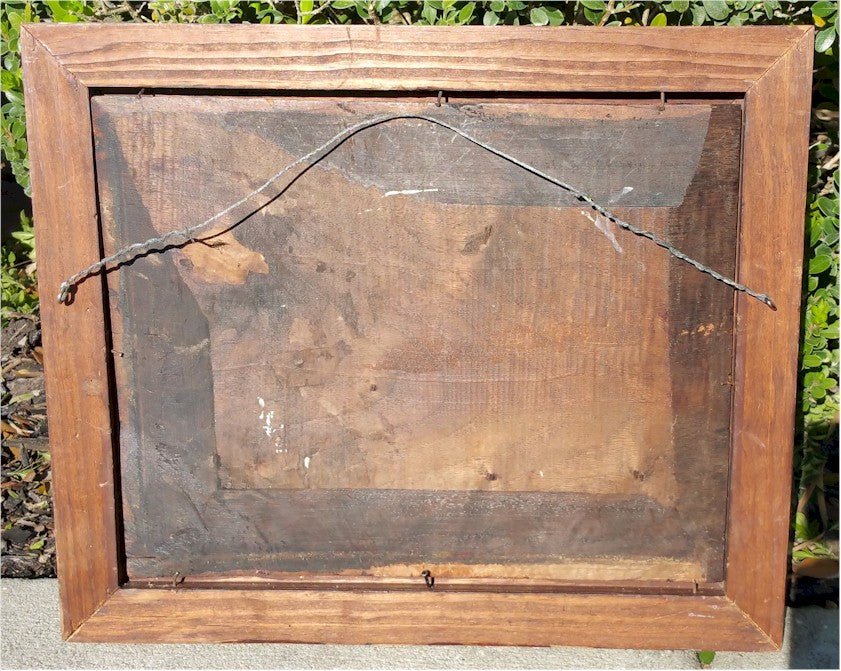CVTreasures
ARTHUR FITZWILLIAM TAIT Vintage Fine Art Barn Animal Painting ROOSTER AND CHICKENS IN BARN INTERIOR
ARTHUR FITZWILLIAM TAIT Vintage Fine Art Barn Animal Painting ROOSTER AND CHICKENS IN BARN INTERIOR
Make an Offer
Couldn't load pickup availability
barn paintings roosters chicken paintings Vintage Fine Art Farm Animals Barnyard
ARTHUR FITZWILLIAM TAIT (American, 1819-1905)
Vintage ROOSTER AND CHICKENS IN BARN INTERIOR.
19th Century Fine Art Barn Animal Painting, 1883
For animal, farm and barnyard art lovers and the master artists who portrayed them with exquisite detail and real life expressions, here is the best of the barn yard animal artists!
Extraordinary work of art by this highly listed popular 19th Century American Artist.. Known for his farm animal scenes, especially chickens and wildlife. This is one of his better executions we have seen with particularly detailed contrast, colors and Lighting (*Note how he brilliantly lights up the Barn like few artists can do)... Signed and dated lower right "A.F.Tait N.A. N.Y. 83" .
* See enlargebale images above and below
Sales History: His sales history confirms the high demand and value for his work. His "The Chick--Keep Your Distance" painting sold at auction in 2007 for $2,841,000. A very similar (but slightly smaller) chicken scene sold at auction in August 2006 for $68,000.. A most impressive piece of fine art to showcase in your home.
Description: Oil on panel. Housed in a vintage gold finish wood frame. Signed and dated lower right "A.F.Tait N.A. N.Y. 83".
SIZE: 9-3/4" x 12-1/4". Overall" 12-1/2" x 15"...
CONDITION: Beveled panel is warped, tiny craquelure upper left. A particularly superb works by this highly listed popular 19th Century American artist
ARTIST BIO:
Arthur Fitzwilliam Tait was born in Liverpool, England in 1819. He initially trained as a lithographer, however after being exposed to artwork by artists such as, Edwin Landseer, Tait decided to pursue a painting career. Primarily self-taught, Tait honed his talent by copying works at the Royal Institute.
Tait met the American painter, George Catlin, who proved a strong influence on the young artist and helped establish his lifelong interest in frontier living. In 1850, Tait came to America where he pursued his love of hunting and wildlife. Although he worked in Manhattan, Tait spent much of his time in the wilderness of upstate New York. The subjects of his paintings were not much different from his own wilderness pursuits; often depicting realistic hunting scenes. Many of these paintings were made into prints by Currier & Ives and were widely distributed, which added to Tait's already burgeoning success.
Tait strove to keep his paintings true to nature and became one of the most respected painters of wildlife in the 19th century. His work is represented in the permanent collections of the Metropolitan Museum of Art, Brooklyn Museum, Corcoran Gallery of Art, and the Tate Gallery in London, among many others.
Share



- Choosing a selection results in a full page refresh.
- Opens in a new window.




